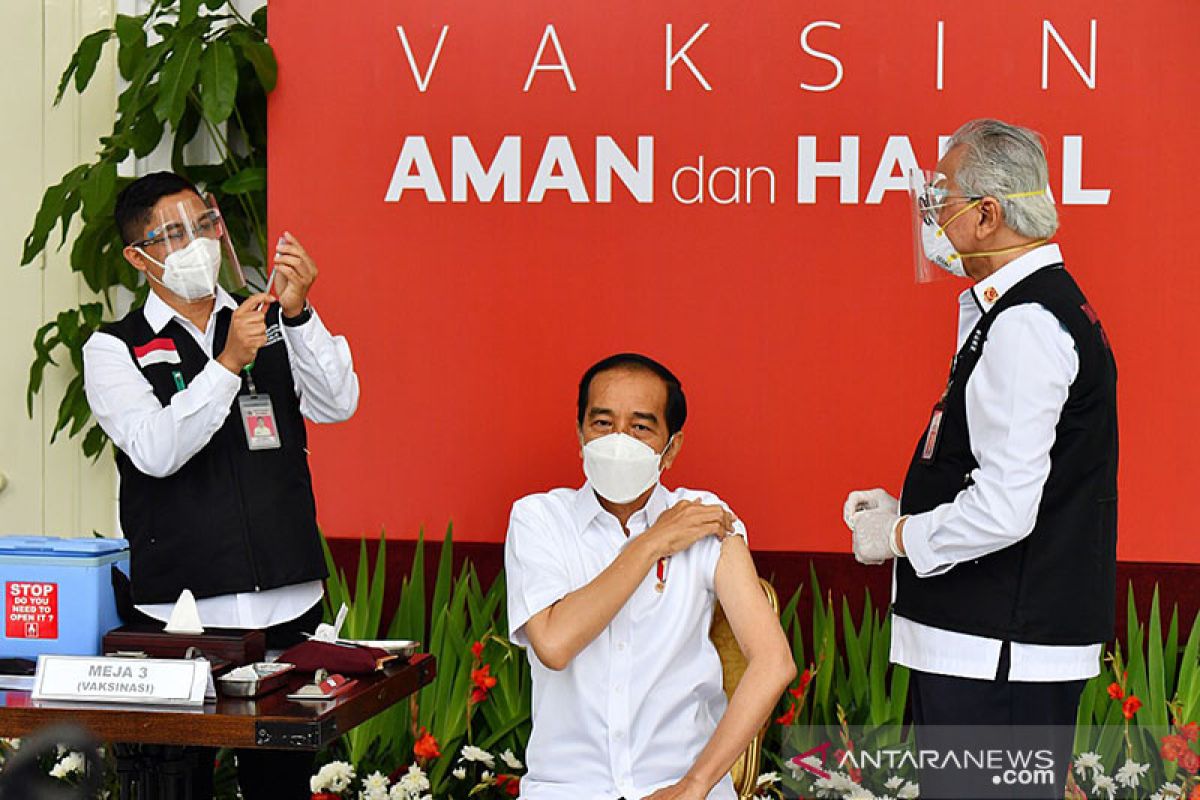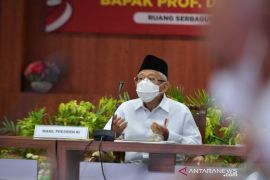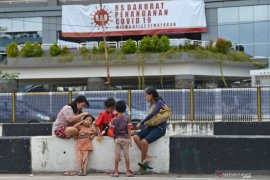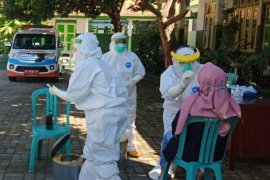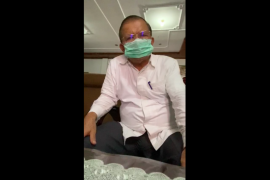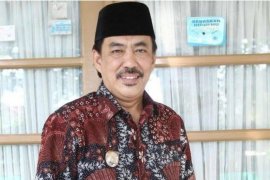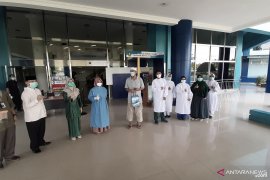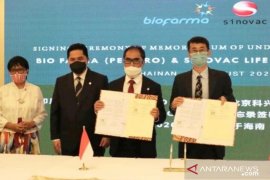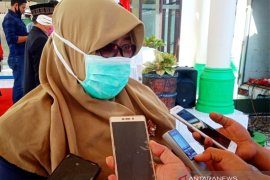The following day, the vaccination program commenced in several regions across the country, with the government distributing about three million doses of the Sinovac vaccine. About 1.4 million healthcare workers are the primary target of the program's initial phase from January to February, 2021.
"The COVID-19 vaccination is important for us to break the chain of coronavirus transmission and provide health protection and security for all of us, the people of Indonesia, and to help accelerate economic recovery," the President remarked.
The National Agency for Drug and Food Control (BPOM) granted emergency-use authorization (EUA) for the COVID-19 vaccine produced by Chinese pharmaceutical company Sinovac on January 11, 2021.
According to the agency, based on data from the third stage clinical trials in Bandung, West Java, the Sinovac vaccine has been found 65.3-percent effective, thereby meeting the World Health Organization (WHO) threshold of 50 percent.
Although the vaccination program has begun, President Widodo has urged Indonesians to continue observing health protocols strictly, such as wearing masks, washing hands with soap frequently, and maintaining social distancing.
In fact, the Indonesian government has decided to extend restrictions on the movement of people in Java and Bali by another fortnight from January 26 to February 8, 2021. The restrictions were earlier imposed from January 11-25.
"Based on the evaluation, the President has ordered an extension of restrictions on the movement of people (by another two weeks) from January 26 to February 8 (2021),” Coordinating Minister for Economic Affairs, Airlangga Hartarto, said at an online press conference on January 21, 2021, following a cabinet meeting held to evaluate the country's COVID-19 pandemic situation.
Under the new rules, shopping centers and malls will remain open until 8 p.m. The number of employees working from home need to constitute 75 percent of the total personnel at a company, restaurants have been allowed to use at most 25 percent of their seating capacity for dine-in visitors, and the number of worshippers at places of worship have been capped at 50 percent of the total capacity.
In the meantime, the Ministry of Health has asked hospitals across Indonesia to convert 40 percent of their health service capacity for COVID-19 treatment, and to convert 25 percent of ICU room capacity to provide ICU services to COVID-19 inpatients.
Health Minister Budi Gunadi Sadikin has issued a circular to all hospitals on the conversion of health services for COVID-19 handling, the ministry's director general of health services, Abdul Kadir, said on January 22, 2021.
"This request is not only for government-owned hospitals, but also for all hospitals, whether they are regional public hospitals, TNI (military) and Polri (Police) hospitals, BUMN (state-owned) hospitals, or public hospitals," he added.
The decision has been taken owing to a spike in COVID-19 cases across Indonesia, which has burdened hospitals treating coronavirus patients
The current level of hospital bed usage for COVID-19 patients has reached around 64.83 percent nationally. Of approximately 81 thousand inpatient rooms, independent isolation rooms, and ICU rooms for COVID-19 patients, around 52 thousand have been filled.
In some areas, especially those in the red zones, the occupancy rate of inpatient rooms for COVID-19 patients has reached between 80 percent and 89 percent. In Tangerang district, about 90 percent of hospital beds are currently occupied by COVID-19 patients.
In Jakarta, the occupancy rate of inpatient rooms has reached 82 percent. At the Emergency Hospital in Wisma Atlet, Jakarta, which only deals with COVID-19 cases, more than 80 percent of rooms are currently occupied.
The number of COVID-19 cases in Indonesia have mushroomed significantly over the past three months. The authorities have claimed that long holidays have contributed to the spike in infections. Several media reports have, however, linked the increase in COVID-19 cases in several regions, such as Jember (East Java), South Bangka (Bangka Belitung) and North Sulawesi, to the simultaneous regional head elections (pilkada) on December 9, 2020, which were held under strict health protocols. But, the authorities have dismissed any links between the COVID-19 case spike and the pilkada held in 270 districts and cities across the country.
Meanwhile, Indonesia on January 22, 2021 added 13,632 COVID-19 infections over a single day, bringing the tally to 965,283, while the death toll reached 27,453. The highest single-day increase in COVID-19 cases in Indonesia was recorded at 14,224, and was reported on January 16, 2021.
"Last November, our active cases were the lowest, at 12.2 percent, and cumulatively, 54 thousand people (were infected). However, today (January 12, 2021) or yesterday, the number of our active cases reached 123 thousand. This indicates an over twofold increase, or to be precise 122 percent," Doni Monardo, chief of the Indonesian Task Force for COVID-19 Handling, said recently.
Following the spike in cases, the government, in line with President Widodo’s directives, has increased the availability of hospitals, ICU, and isolation rooms, he stated.
However, such efforts would suffice only if supported by the people and local governments in applying health protocols strictly to break the chain of COVID-19 transmission, Monardo emphasized.
"I urge the entire nation to increase adherence to health protocols since it is the key to breaking the chain of COVID-19 transmission," he added. (INE)
Related news: Over two-fold spike in Indonesia's COVID-19 cases within 2.5 months
Related news: Government ensures stock of 329.5 million doses of vaccines: President
EDITED BY INE
Editor: Suharto
Copyright © ANTARA 2021
